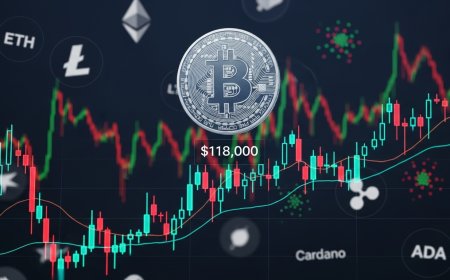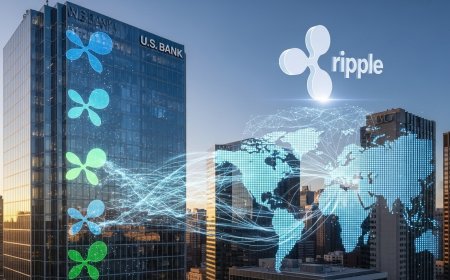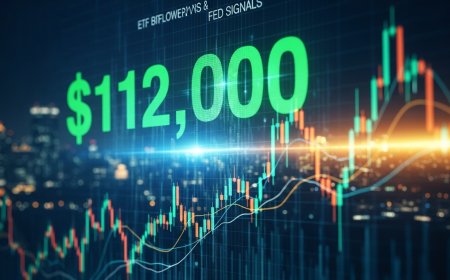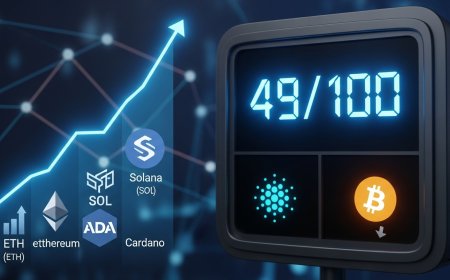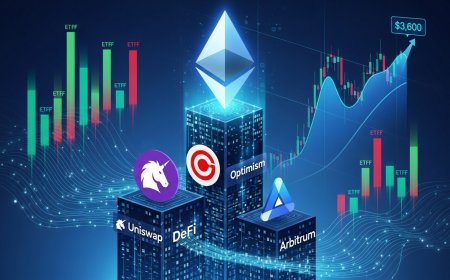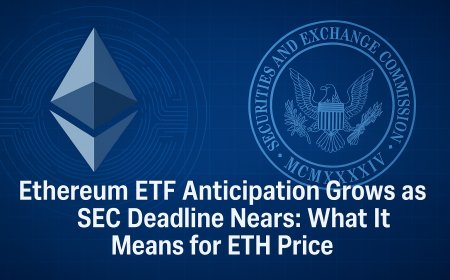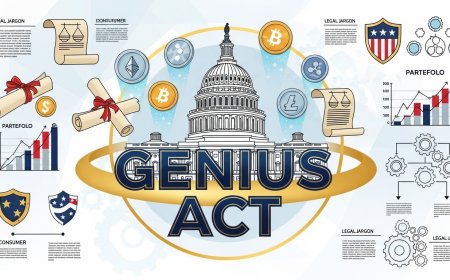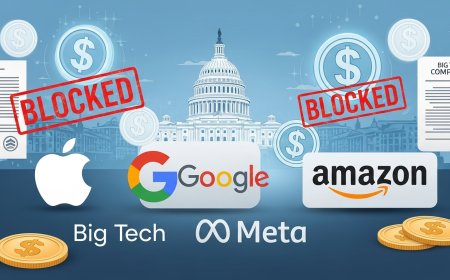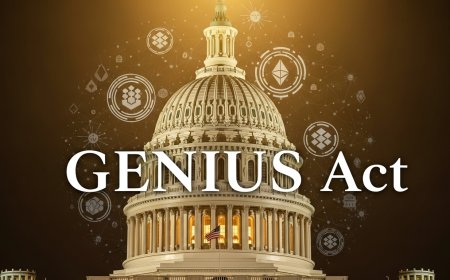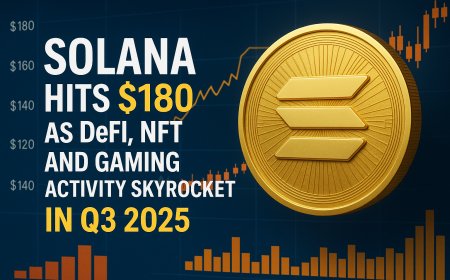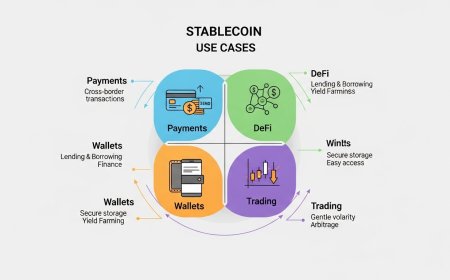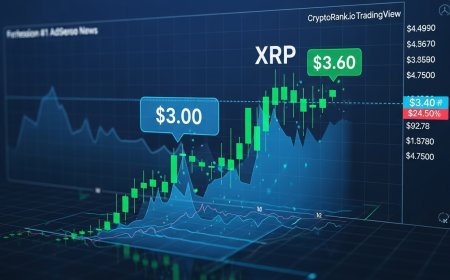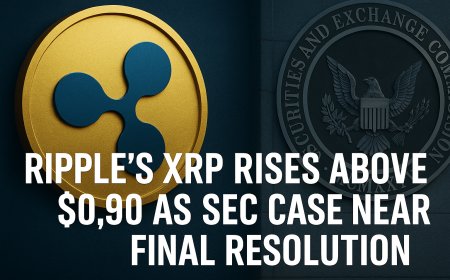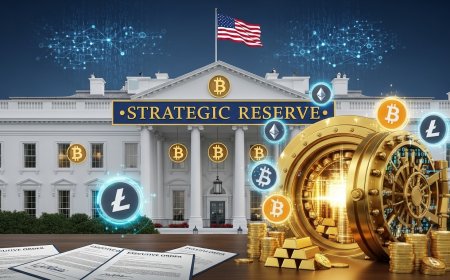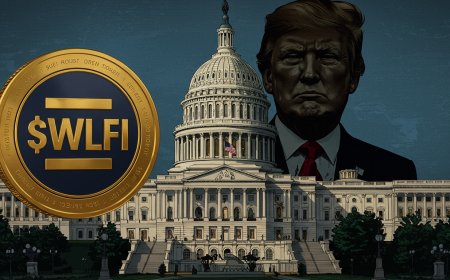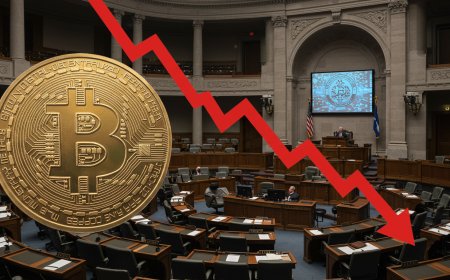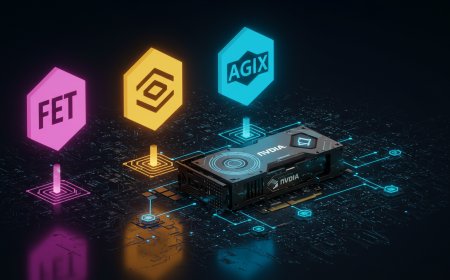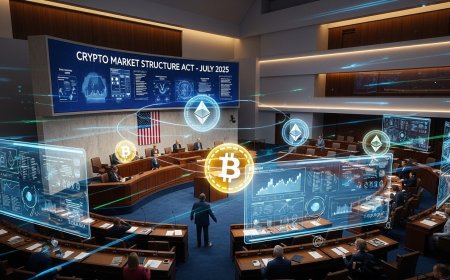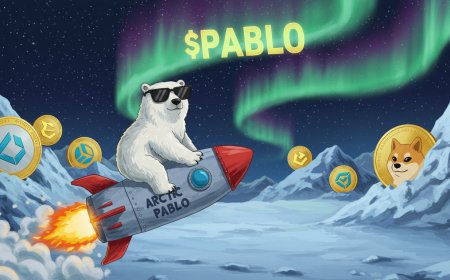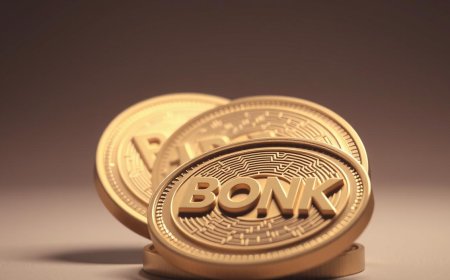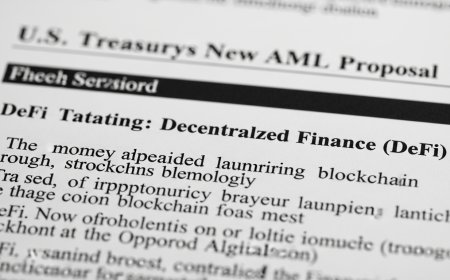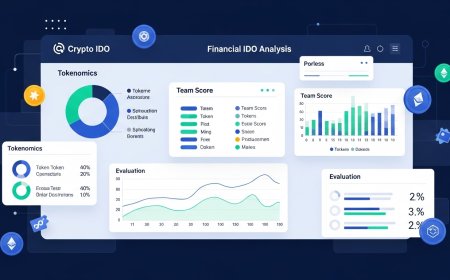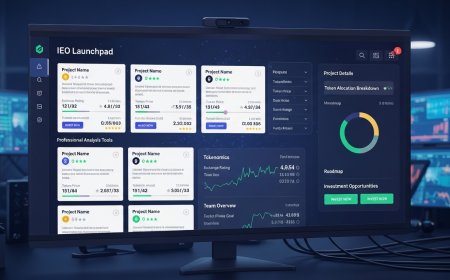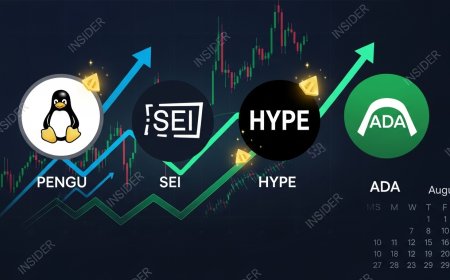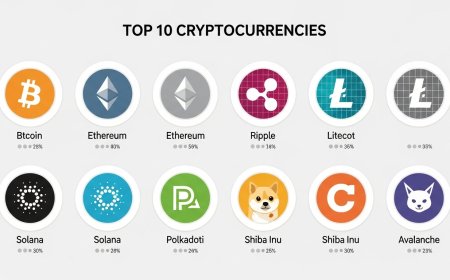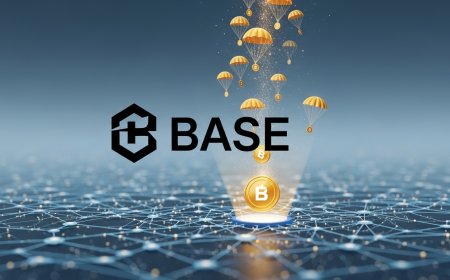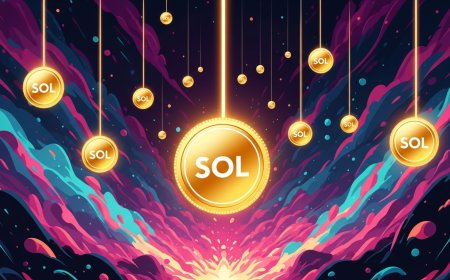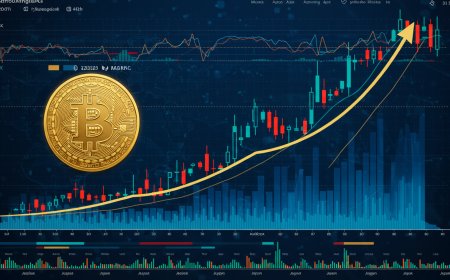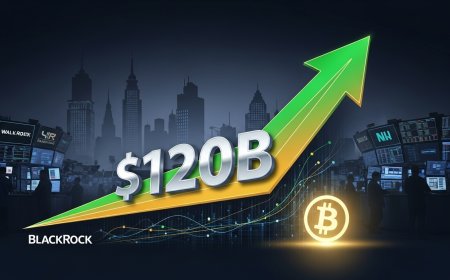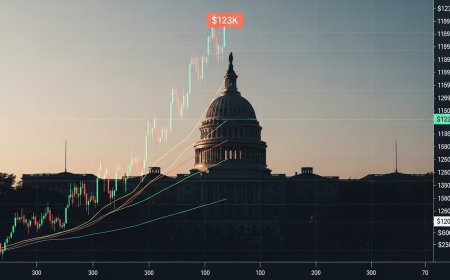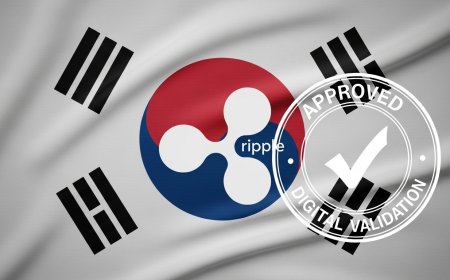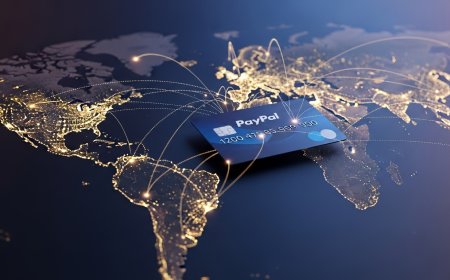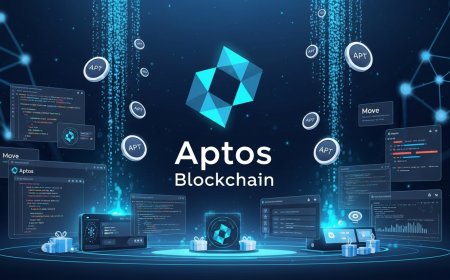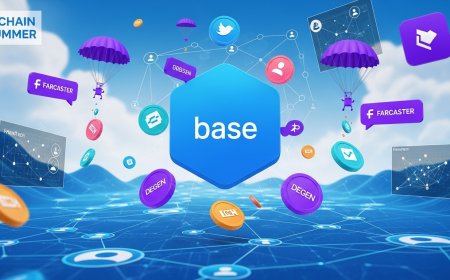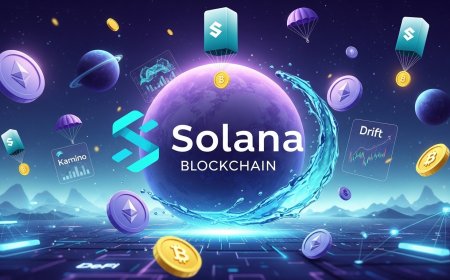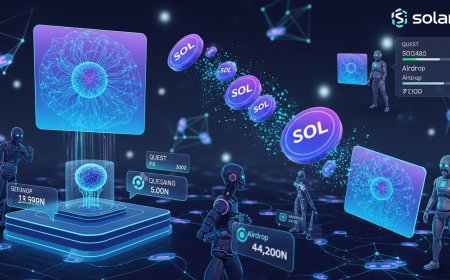Tokenization: Crypto’s Next Frontier in Global Finance
Tokenization of real-world assets is rapidly emerging as a multi-trillion-dollar opportunity. From real estate to U.S. treasuries and private equity, blockchain is transforming ownership and liquidity. As lawmakers draft clearer crypto rules and institutions adopt tokenized products, this innovation could become the foundation of a new financial era. Explore how tokenization is revolutionizing global finance. Blockchain-backed assets are unlocking liquidity, transparency, and access like never before. Is this the future of crypto?
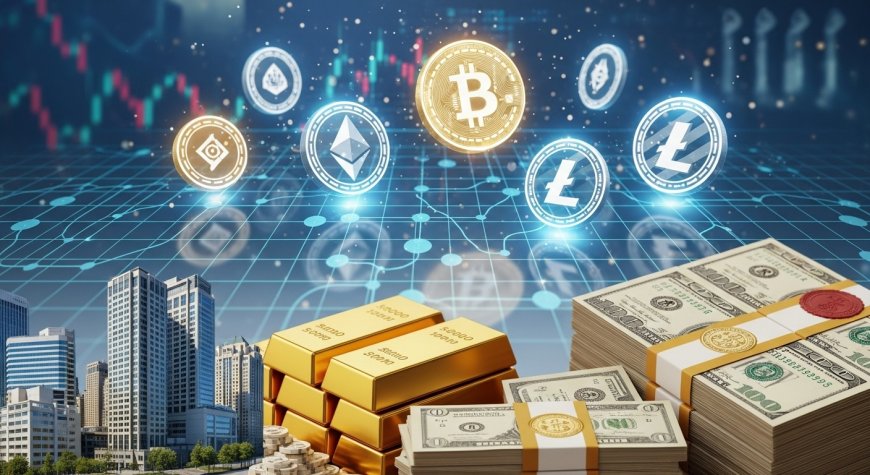
🧱 Tokenization: Crypto’s Next Frontier in Global Finance
July 23, 2025 — CryptoFortress News Desk
In a pivotal shift that could redefine the global financial system, tokenization is gaining traction as one of the most promising innovations in crypto and blockchain. Industry analysts and lawmakers alike now believe that real-world assets (RWAs) brought on-chain — from real estate to U.S. Treasuries — may unlock trillions in value.
According to data from Boston Consulting Group, the tokenized asset market is projected to grow from $256 billion in 2024 to over $2.1 trillion by 2028.
🔍 What Is Tokenization?
Tokenization is the process of representing ownership of real-world assets as digital tokens on a blockchain. These tokens can represent:
🏠 Real estate shares
💰 Bonds or equities
🖼️ Intellectual property or collectibles
🛢️ Commodities like oil, gold, and energy credits
These tokens are:
Verifiable
Fractional
Programmable
Tradable 24/7 on blockchain networks
In essence, tokenization aims to make every asset liquid, transparent, and accessible, regardless of geography or net worth.
🚀 Why Is Tokenization Booming in 2025?
The rise of tokenization isn’t hype — it’s being driven by concrete forces:
🏦 Institutional Interest
BlackRock, Franklin Templeton, and HSBC are already issuing on-chain bonds and funds.
JPMorgan’s Onyx Digital Assets platform surpassed $2 billion in daily tokenized settlements in Q2 2025.
🧾 Regulatory Clarity
U.S. lawmakers are finalizing a crypto market structure bill (per Axios, July 23, 2025) that outlines frameworks for tokenized securities.
The EU MiCA regulation is expanding into tokenized funds and bonds.
💡 Technological Maturity
Ethereum, Polygon, and Avalanche now support permissioned DeFi protocols for institutions.
Chainlink CCIP allows cross-chain tokenized asset transfers with secure data feeds.
💰 Real-World Asset Examples Going On-Chain
✅ U.S. Treasuries
Tokenized treasury platforms like Ondo Finance, Backed, and Matrixdock have issued over $1.7 billion in T-Bill tokens.
These products offer higher yields than traditional DeFi stablecoins with full asset backing.
✅ Real Estate
Platforms like RealT, Lofty.ai, and BrickTrade tokenize property ownership and pay out rental income as dividends.
Investors can buy shares of U.S. or international property for as little as $50.
✅ Commodities
Gold-backed tokens such as PAXG and Tether Gold (XAUT) are gaining popularity as inflation hedges.
New platforms are tokenizing carbon credits, oil reserves, and mineral rights.
📈 Market Growth Forecast
Year Tokenized Market Size CAGR
2024 $256 Billion –
2025 $460 Billion +79%
2026 $790 Billion +72%
2027 $1.43 Trillion +81%
2028 $2.1 Trillion+ +85%
Source: BCG, Chainalysis, Tokeny Reports (2025)
⚖️ Legal Frameworks and Policy Momentum
Tokenization thrives only with regulatory clarity. In 2025, progress is tangible:
🇺🇸 U.S. Congress: The new Tokenized Assets Regulatory Clarity Act (TARCA) introduces a sandbox for compliant RWA offerings.
🇪🇺 MiCA 2.0 includes rules for on-chain treasury products and cross-border investor disclosures.
🇧🇷 Brazil’s CVM (Securities Commission) legalized the use of tokenized securities on licensed platforms like Vórtx QR.
These legal advances remove barriers for banks, asset managers, and fintech firms looking to tokenize traditional assets.
🧠 Benefits of Tokenized Finance (DeFi 2.0)
Feature Traditional Assets Tokenized Assets
Trading Hours 9-5, weekdays 24/7, global
Settlement Time T+2 or longer Instant or T+0
Access Requirements Accredited Investors Open to all (via KYC)
Fractionalization Rare Native & Easy
Transparency Opaque Fully auditable
This leap in efficiency could compress costs, expand access, and reduce financial frictions across borders.
🌐 Top Blockchains Powering Tokenization
Ethereum: Institutional-grade with smart contract maturity
Polygon: Used by Franklin Templeton for tokenized money market funds
Avalanche Subnets: Chosen by private banks for permissioned environments
Stellar & Ripple: Driving tokenized cross-border stablecoin settlements
Sui & Aptos: Offering high throughput for fintech integrations
🛑 Risks and Regulatory Challenges
Despite the excitement, tokenization carries risks:
📉 Smart contract bugs (historical DeFi exploits)
⚖️ Jurisdictional overlaps (SEC vs CFTC vs FINMA)
🔐 Custody complexities and KYC/AML enforcement
💻 User education gaps
Governments are pushing for:
Auditable smart contracts
Third-party insurance backing
Whitelisting rules for on-chain securities
💬 Expert Opinions
“Tokenization is the most impactful real-world use of blockchain since Bitcoin.”
— Larry Fink, CEO of BlackRock
“By 2030, everything of value will be tokenized.”
— Caitlin Long, Custodia Bank
“Tokenized U.S. Treasuries could replace traditional money market funds.”
— Jeremy Allaire, CEO of Circle
🎯 Conclusion: The Road Ahead
Tokenization is more than a trend — it’s a transformation. With real financial assets like treasuries, real estate, and equities moving on-chain, the lines between traditional finance (TradFi) and decentralized finance (DeFi) are rapidly blurring.
As the legal infrastructure solidifies and public understanding grows, tokenized assets could become the new default for asset ownership in the digital economy.
What's Your Reaction?
 Like
0
Like
0
 Dislike
0
Dislike
0
 Love
0
Love
0
 Funny
0
Funny
0
 Angry
0
Angry
0
 Sad
0
Sad
0
 Wow
0
Wow
0
